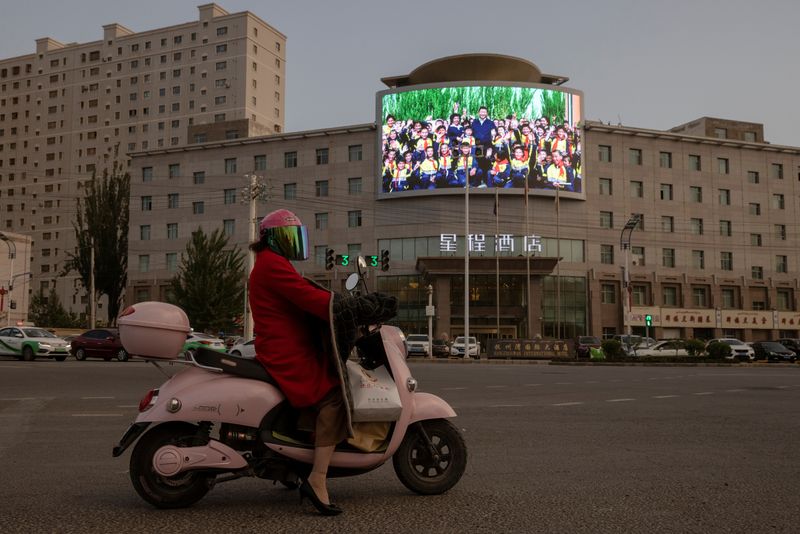By Brenda Goh
SHANGHAI (Reuters) -Human Rights Watch (HRW) on Thursday urged automakers such as Tesla (NASDAQ:TSLA), Volkswagen (ETR:VOWG_p) and BYD (SZ:002594) that produce cars in China to do more to ensure materials that could be made using Uyghur forced labour do not enter their supply chain.
The rights group said in a report that it had found evidence that Xinjiang aluminum producers had employed workers from Chinese government-backed labour transfer programmes, which it accuses of coercing Uyghurs and other Turkic Muslims into jobs in Xinjiang and other regions.
Aluminum produced in Xinjiang is used in China to manufacture automotive parts which are then sold to global carmakers, and these companies are responsible under United Nations principles to ensure forced labour is not used in supply chains, HRW said.
Senior researcher Jim Wormington said HRW had named and reached out to Tesla, Volkswagen, BYD, General Motors (NYSE:GM) and Toyota (NYSE:TM) due to their large sales volumes but that they had not found any specific violation of forced labour.
Rights groups including HRW accuse Beijing of abuses against Uyghurs, a mainly Muslim ethnic minority of around 10 million people in the western region of Xinjiang, including the mass use of forced labour in internment camps. China has denied such allegations.
These car companies should take measures to map out their supply chains better and immediately disengage from any direct supplier in Xinjiang until due dilligence is possible, the group urged.
Xinjiang is China’s No.2 primary aluminum producing region.
“Car companies simply don’t know the extent of their links to forced labour in Xinjiang in their aluminum supply chains,” Wormington said.
“Consumers should know their cars might contain materials linked to forced labour or other abuses in Xinjiang."
Volkswagen told Reuters that it took a firm stand against forced labour and immediately investigated any allegations.
The company has a joint venture in Xinjiang and, under heavy investor pressure, commissioned an audit last year that found no signs of forced labour. Even so, the exercise has been controversial as the auditor cited data collection challenges.
Tesla did not respond to a query from Reuters. Human Rights Watch said Tesla had told them that it had, “in several cases”, mapped its supply chain back to the mining level and had not found evidence of forced labor.
Toyota said it would closely review HRW's report and that it expected suppliers to respect human rights. General Motors said it recognised the importance of responsible sourcing practices and worked with partners and organisations to evaluate and address any potential violation in its supply chain.

BYD and China's State Council Information Office, which handles media queries for the Chinese government, and the Xinjiang government did not respond to requests for comment.
China is estimated to have overtaken Japan as the world's largest auto exporter in 2023, thanks largely to the strength of nimble domestic companies such as Chery, SAIC, Geely and BYD.